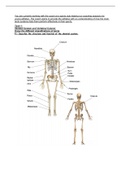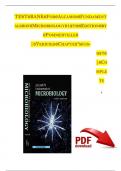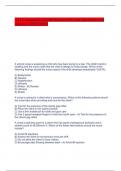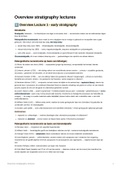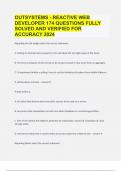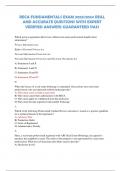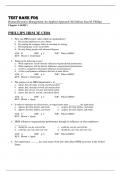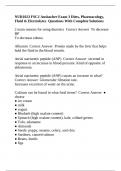Essay
Unit 1 Principles Of Anatomy and Physiology PEARSON - BTEC Level 3 Certificate In Sport. Full Notes. Assignment.
- Vak
- Instelling
I achieved a D* for this piece of work. Full assignment. Unit 1 Principles Of Anatomy and Physiology PEARSON - BTEC Level 3 Certificate In Sport. Full Notes. Essay Plan and Assignment. You are currently working with the coach at a sports club helping run coaching sessions for young athletes. ...
[Meer zien]
